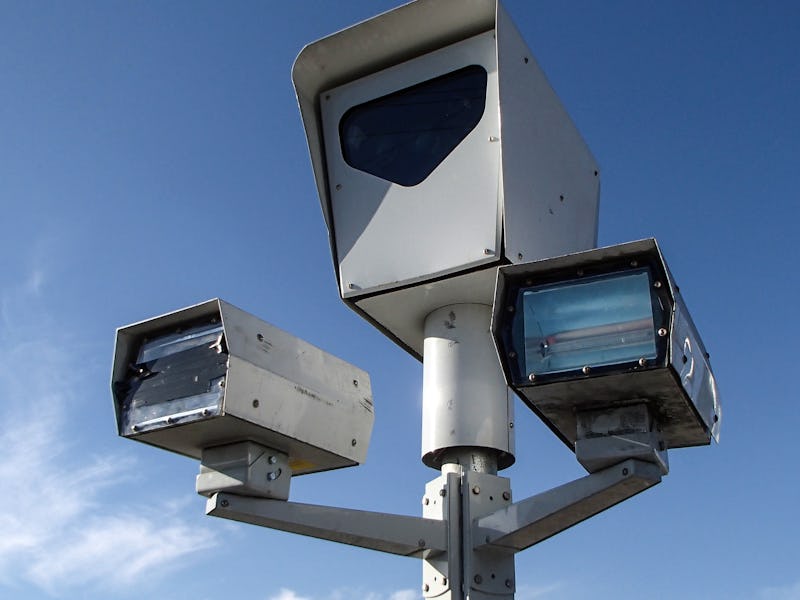The Missouri Supreme Court Has Ruled Red Light Camera Laws Unconstitutional
A win against these provably treacherous robotic racketeers.

Pop a bottle for Missouri drivers. On Tuesday, the state’s Supreme Court declared that a St. Louis ordinance governing red light cameras was unconstitutional. So if you live there, no further tickets will be issued, and if you got a ticket in the past 18 months, don’t pay it. If you already did pay, you’re due a refund.
This is a small but important victory on the road to getting these crimson-eyed snitches out of all our lives for good. While the ruling doesn’t call the cameras themselves unconstitutional, it does take down the common method of ticketing the vehicle’s owner regardless of whether they were actually driving.
A quick primer for anyone lucky enough to make it this far without having to deal with automated policing: all you need for a system are a camera, sensors, and an intersection with a traffic light. Typically the camera is digital, fixed high enough to get a vantage of the road, and most importantly, your license plate. If a car trips the sensors while the light is red (so often, as it just turned red) the camera snaps a picture. Whichever unfortunate soul is registered as the car’s owner gets a ticket in the mail about a week later, regardless of whether they were actually behind the wheel. It’s that assumption pitfall Missouri’s highest court took issue with.
“This Court further finds ordinance 66868 is unconstitutional because it creates a rebuttable presumption that improperly shifts the burden of persuasion onto the defendant to prove that he or she was not operating the motor vehicle at the time of the violation,” the court’s majority wrote, according to the St. Louis Post-Dispatch.
The court also struck down ordinances in two other cities, calling out St. Peters’ because it didn’t assess driving-record points and Moline Acres’ for presuming a vehicle owner granted permission for a driver to break the speed laws.
St. Louis City Hall spokeswoman Maggie Crane defended the cameras to The Riverfront Times, writing: “Between May 2007 and November 2013, the number of citations issued decreased by 63 percent. Eighty-four percent of red-light runners, who are cited and pay the fine for violating the City’s red light camera safety ordinance, do not get a second ticket.”
Everyone agrees there will be a lot more ordinance reworking and legal challenges from here on out, but it’s good to have some precedent. The height of red light camera fever converged with the rot of the Great Recession, and cash-strapped cities embraced them as an easy revenue source. At their most widespread in 2012, 540 jurisdictions used the monitors. Since Rahm Emanuel’s election as Chicago’s mayor in 2011, that city has scraped up $284.9 million in fines from red light cameras. Florida drivers paid them more $100 million in 2012 alone.
As to the camera’s actual usefulness, numbers were mixed at best. A Chicago Tribune study found that while the cameras did reduce right-angle crashes that caused injuries by 15 percent, that drop was offset by a corresponding rear-end crash increase of 22 percent. “The biggest takeaway is that overall (the program) seems to have had little effect,” Dominique Lord, a Texas A&M University civil engineering prof told the Trib.
Chicago journos aren’t the only ones who think the cameras could hurt more than help. A study from North Carolina Agricultural & Technical State University determined the cameras might actually be causing accidents, concluding: “The results do not support the view that red light cameras reduce crashes. Instead, we find that RLCs are associated with higher levels of many types and severity categories of crashes.”
People got fed up, as they are wont to do when they’re certain their governments are robbing them with cheap digital recorders. Legal challenges multiplied, pols started demanding curbing their use or pulling them altogether in their re-election campaigns, and since 2012, appearance of new cameras has steadily declined. Here’s to a court ruling that moves in the direction of unbolting these dangerous, mechanized extortionists.